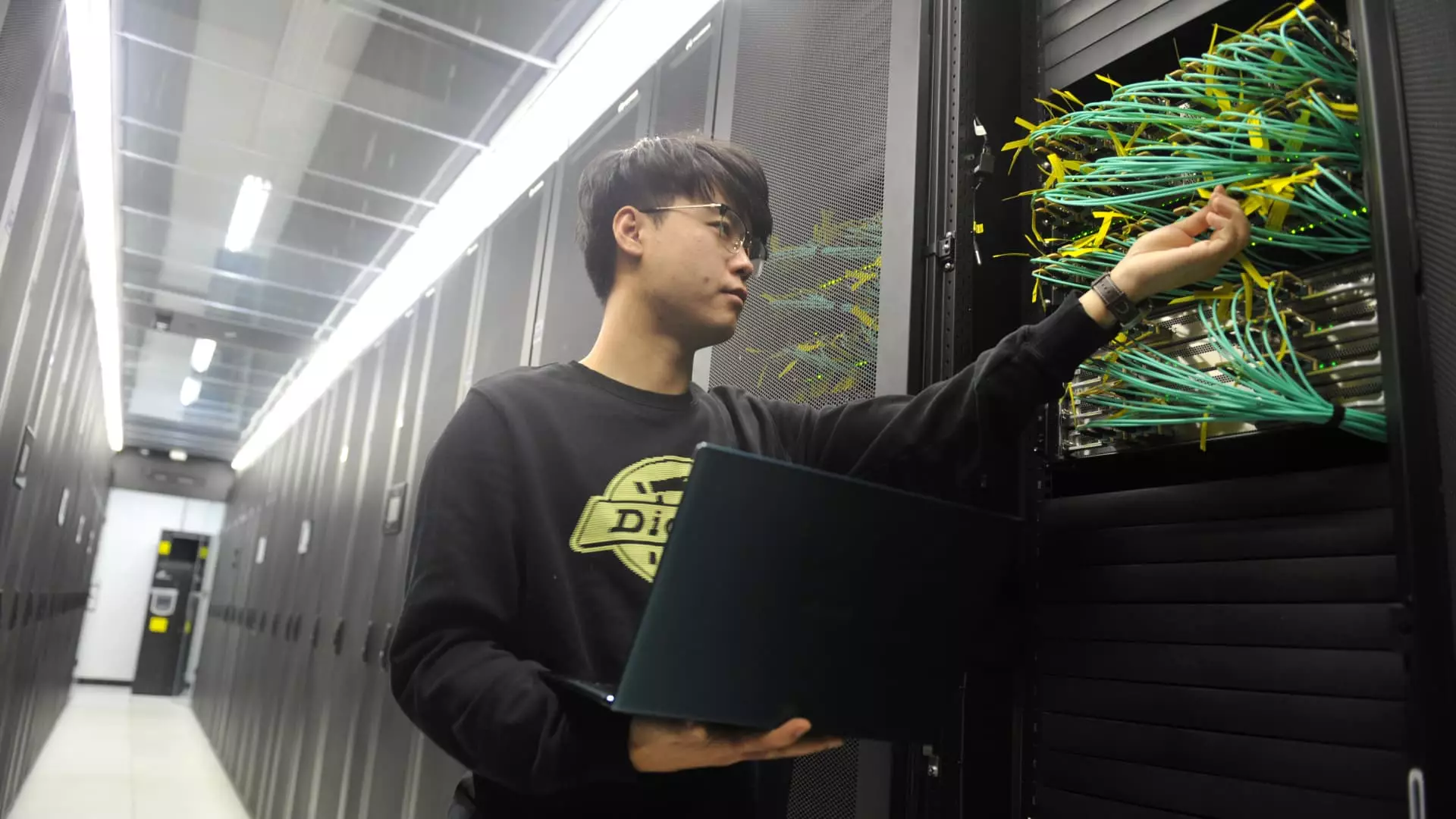As the U.S.-China trade tensions continue to escalate, a transformative force appears to be brewing beneath the chaos—artificial intelligence. While many may view the current climate as one of uncertainty and economic strife, a handful of Chinese companies seem poised to thrive amid the storm. This paradox is not just about weathering the storm; it’s about seizing the opportunity to build a robust economic future centered on generative AI technologies.
Leading the charge are firms like Kingsoft and Kingdee, which are leveraging the strengths of generative artificial intelligence to redefine their landscapes. As noted by Bernstein analysts, the surge in demand for AI, especially through platforms like DeepSeek, represents not merely a trend, but a vital necessity for growth and competition. This is a stark realization that the so-called trade war can potentially backfire, leading to rapid innovation previously suppressed by stagnation and inefficient practices.
From Tensions to Technological Triumphs
Historical context suggests that increased U.S. scrutiny and tariffs can serve as a catalyst for localized growth in the tech sector. Similar dynamics played out during Trump’s presidency, whereby Chinese firms accelerated their investments in local IT solutions to counteract adverse impacts. Fast forward to today—China appears more determined than ever to harness the power of indigenous technology, particularly in AI, as it attempts to reduce reliance on foreign entities. This era marks a shift away from reactive adaptation to proactive technological ‘deterritorialization.’
With the ambitious embrace of generative AI as a central pillar of its economic strategy, firms are equipped not just to survive but potentially to flourish. Kingsoft’s WPS saw impressive adoption rates, producing almost 20 million users in mainland China. Such numbers are not simply statistics—they are indicative of a society on the cusp of digital revolution, fueled by indigenous innovation and commitment to adapting to modern technological demands.
Solidifying Economic Foundations in a Shifting Landscape
Amidst increasing uncertainty, new opportunities for local firms to expand their horizons arise, offering previously unimagined paths to economic resilience. Both Kingsoft and Kingdee are examples of companies pivoting toward AI-driven strategies to enhance productivity and operational efficiencies. These intelligent systems are not isolated; there’s a symbiotic ecosystem being nurtured where AI and chips nurture each other, a vital step encouraged by state policy.
Despite rising tariff tensions—which have, according to Goldman Sachs and Citi, pressured overall economic performance—domestic AI demand remains robust. Those in the know, like Nomura’s analysts, predict that the potentials for home-grown AI technologies will buffer the setbacks imposed by geopolitical strains. In this sense, the trade war may paradoxically stimulate a renaissance in Chinese tech innovation underpinned by localized production and intelligent systems.
The Importance of Cloud Infrastructure
In addition to AI software, cloud computing represents another frontier where Chinese companies are leading the charge. State-owned enterprises such as China Mobile are well-positioned, experiencing demand that is relatively unaffected by tariff-induced economic shifts. With companies like GDS demonstrating significant revenue forecasts amid increasing utilization rates in data centers, a glimpse into the future reveals a landscape where digital infrastructure is not just a necessity, but a central pillar for economic growth.
With domestic-centric models taking precedence, investment patterns are likely to shift towards projects aimed at enhancing China’s digital infrastructure. This could mitigate the economic vulnerabilities exposed by international tariff tensions. The future landscape of cloud computing and AI development can only be fully imagined when one considers how government incentives may bolster these sectors, functioning as a double edger—protecting domestic interests while nurturing innovation.
AI as a Growth Driver for Business Management
As business architectures undergo radical transformation, the rise of AI-driven enterprises cannot be overlooked, especially as companies like Kingdee announce their ambitions to pivot fully into AI-based management solutions. This strategic maneuver isn’t just a reflection of current trends; it represents an urgency to adapt and overcome in a sector riddled with challenges.
AI streamlines operations, enhancing efficiency, and thus emerges as a game-changer for businesses struggling to navigate the complexities of modern commerce. As the digital landscape evolves, businesses that prioritize AI capabilities will not merely react to changing circumstances but may well dictate the terms of engagement in tomorrow’s economy.
The unyielding march of technology coupled with smart policy decisions creates fertile ground for innovation to flourish. The future of China’s economic landscape may lie in its ability to merge aspiration with technological prowess, navigating the treacherous waters of international competition while cultivating home-grown capabilities that promise growth and resilience.

